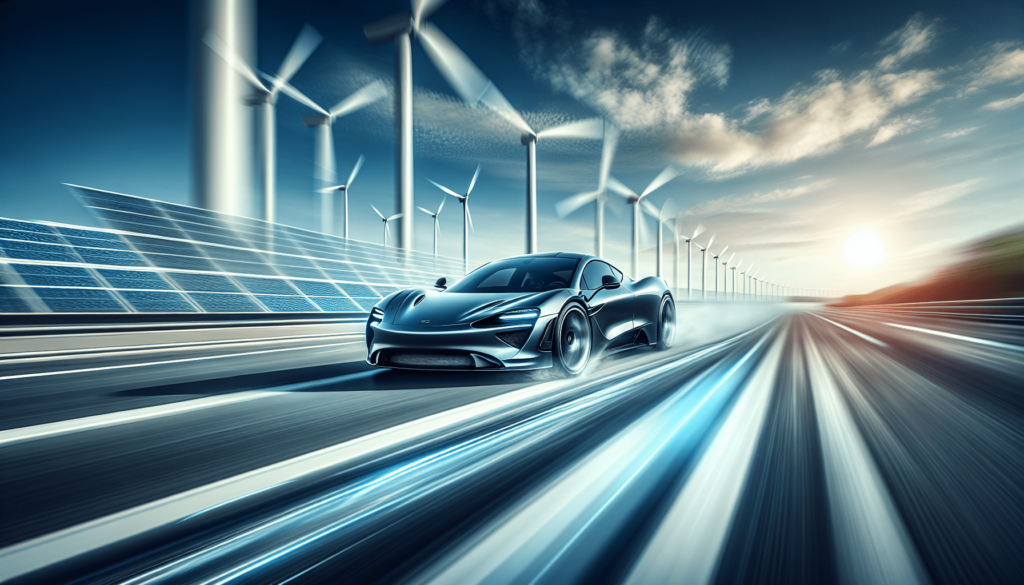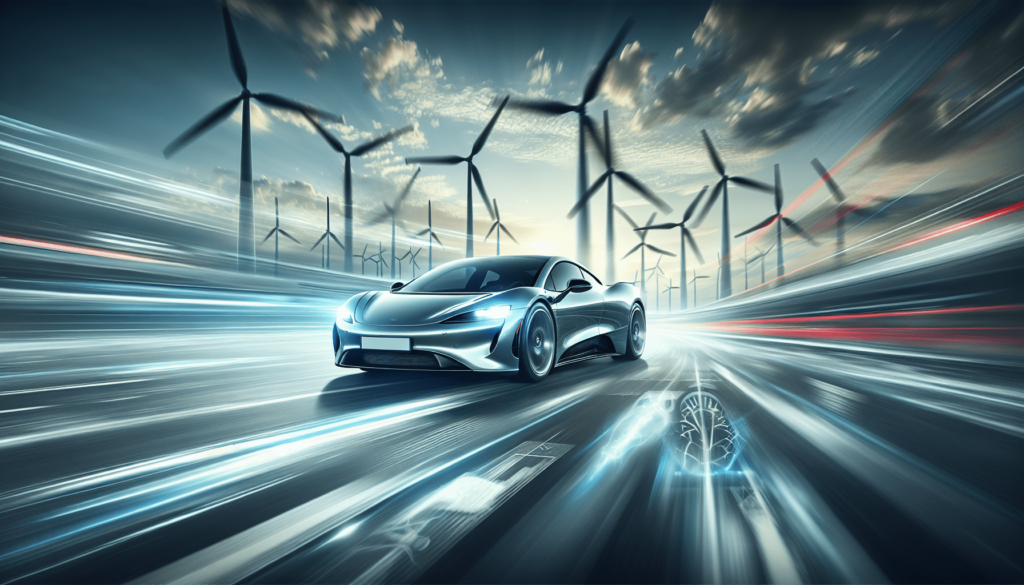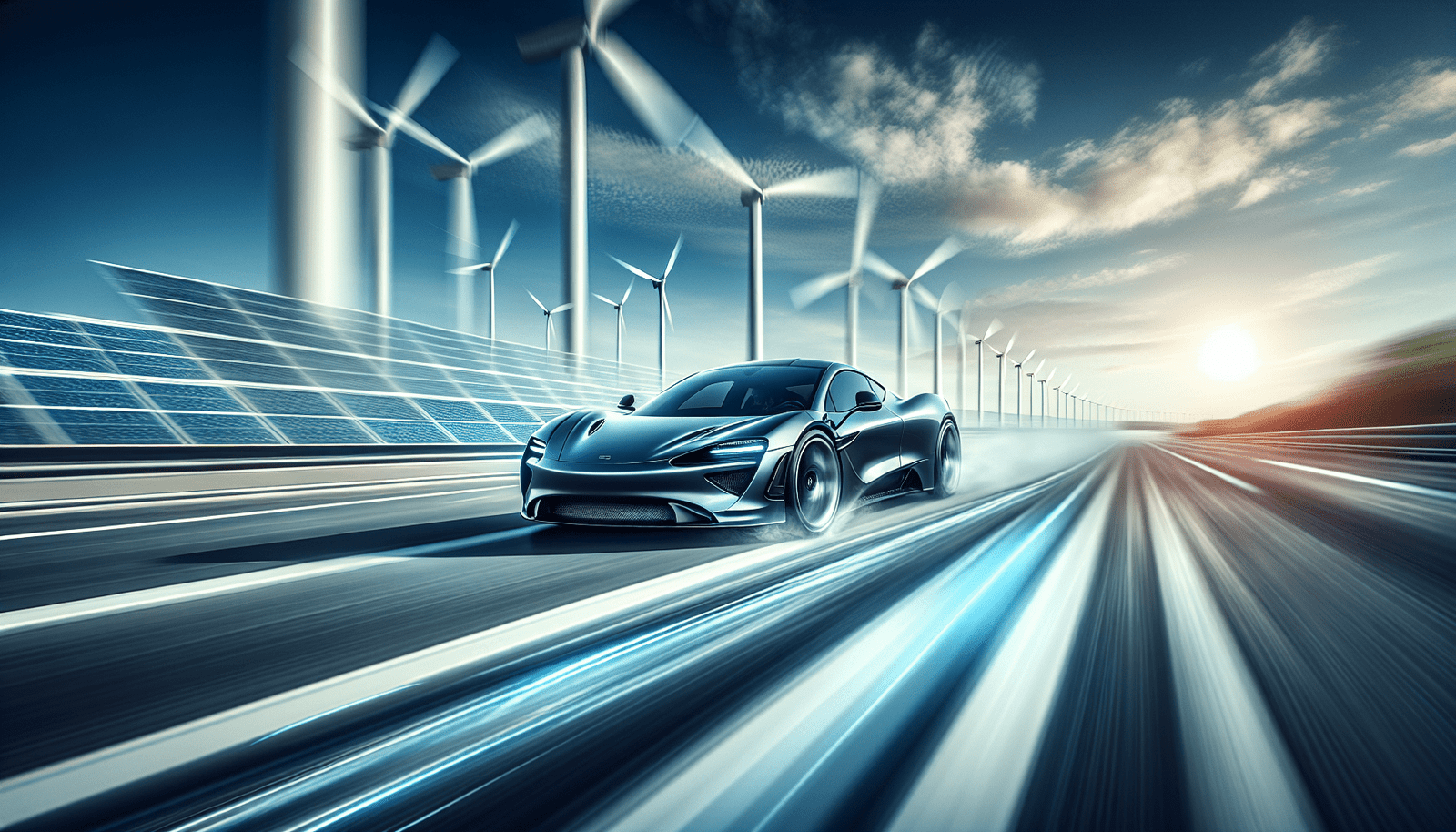You’re probably curious about how electric cars stack up when it comes to the nitty-gritty of acceleration and speed, right? After all, it’s one thing to praise them for being eco-friendly, but quite another to understand how they really fare on the road in those heart-pumping moments of quick starts and high-speed cruising. Let’s clear the air and get into the specifics of electric vehicles’ performance, breaking down what you can expect when you push that accelerator to the floor.

Understanding Electric Car Mechanics
Basic overview of electric car operation
In the simplest terms, electric cars are powered by electric motors that draw energy from a battery pack. You turn the key (or, in modern models, push a button), and electricity is immediately directed from the battery to the motor, which then spins the wheels. It’s a straightforward process that skips many of the complex steps found in gasoline cars, like igniting fuel and transferring power through multiple mechanical systems.
Differences between electric engines and internal combustion engines
The heart of the difference between electric engines and internal combustion engines lies in how they generate power. Your electric car relies on electricity stored in its batteries, transferred directly to an electric motor. Internal combustion engines, on the other hand, burn fuel to create an explosive force, which then has to be converted into rotational energy. This fundamental difference makes electric cars more energy-efficient and grants them unique performance characteristics.
How electric motors translate power to acceleration
Electric motors are marvels of simplicity and efficiency. Unlike gasoline engines, which need to build up power over a range of revolutions per minute (RPM), electric motors deliver their maximum torque instantly. That means the moment you hit the accelerator, you’re getting all the power the motor can give. This instant power transfer is what gives electric cars their characteristic quick acceleration.
Acceleration in Electric Cars
Instant torque and its advantages
Torque is essentially a measure of a car’s ability to do work; in this case, to move itself forward. Electric cars can unleash their full torque immediately, giving them a significant advantage in acceleration over traditional vehicles, which need time to ramp up their power. This responsiveness not only makes electric cars more fun to drive but also more capable in situations that demand quick acceleration, such as merging onto highways.
Comparison of acceleration times with traditional vehicles
When you compare the 0-60 mph times, many electric cars outperform their gasoline counterparts, especially when comparing vehicles within similar price ranges and classes. This quicker acceleration time is a direct benefit of the instant torque available to electric vehicles (EVs).
Factors affecting electric car acceleration
While electric cars are generally quick off the line, several factors can affect their acceleration, including battery charge level, motor power, vehicle weight, and even the temperature outside. A well-charged, powerful, lighter electric car in moderate conditions will likely perform best.
Top Speed of Electric Cars
How electric car design influences top speed
The top speed of an electric car isn’t just about its motor’s power; aerodynamic design also plays a crucial role. Electric cars are often designed with smooth, streamlined shapes to reduce air resistance, helping them achieve higher top speeds with less energy expenditure.
Comparison of top speeds with gasoline cars
While electric cars often excel in acceleration, their top speeds can be more comparable to those of traditional vehicles. Electric vehicles (EVs) might not always reach the dizzying top speeds of the fastest supercars, but many can still compete very favorably in the real world, where legal and safety limits cap how fast you’d want to go.
Limitations to electric car speeds
Several factors limit the top speeds of electric cars, including battery capacity, the efficiency of the electric motors at high speeds, and deliberate limitations set by manufacturers to preserve battery life and enhance safety.
Influence of Battery Technology
Role of battery capacity in performance
The battery in an electric car isn’t just for keeping the lights on and the music playing. It’s the source of all the car’s energy, and its capacity greatly influences overall performance, including speed and acceleration. A larger-capacity battery can provide more power to the motor, potentially leading to better performance.
How battery technology advancements have improved acceleration and speed
As battery technologies have evolved, they’ve become not only more capacity-efficient but also better at delivering power quickly and reliably. This has directly translated into better acceleration and higher top speeds for electric vehicles.
The future of battery technology and performance
Looking forward, advancements in battery technology, including solid-state batteries and new materials, promise even higher capacities, faster charging times, and better performance. This means that the electric cars of the future will likely be even faster and more efficient.

Software and Electric Car Performance
Impact of software updates on car acceleration and speed
One of the most intriguing aspects of modern electric cars is their ability to improve over time through software updates. These updates can tweak the efficiency of power delivery, adjust battery management systems, and even outright increase the vehicle’s acceleration and top speed.
Customization of driving experience through software
Electric cars offer a level of customization that traditional vehicles can’t match, thanks to their software-driven nature. Through adjustable settings, you can often choose between maximizing efficiency for longer range or dialing up the performance for quicker acceleration and higher speeds.
Safety considerations with increased performance
With great power comes great responsibility. As electric cars become quicker and software updates unlock even more performance, it’s crucial to consider the impact on vehicle safety. Manufacturers must balance increases in speed and acceleration with ensuring that the car remains controllable and safe under all conditions.
Test Data and Case Studies
Real-world acceleration and speed records
Electric cars have already begun to set impressive records, with some models achieving 0-60 mph times in under 3 seconds. These kinds of performances were once the sole domain of high-end sports cars and are now becoming more accessible.
User experiences with electric car performance
Many electric car owners rave about the smooth, fast acceleration and the joy of instant torque. This satisfaction isn’t just about raw speed but also about the responsiveness and control they feel over their vehicles.
Comparative studies between models and brands
Comparing acceleration times, top speeds, and overall performance across different electric models and brands can give you a good idea of what’s available. These studies often highlight not just the capabilities of top-tier electric sports cars but also the impressive performance of more affordable models.
Electric Sports Cars and Supercars
How top-tier electric cars are pushing the boundaries
The electric sports cars and supercars of today are redefining what’s possible in terms of performance. They combine cutting-edge battery technology, sophisticated aerodynamics, and power management to achieve unprecedented acceleration and speeds.
Notable electric sports cars and their performance statistics
Brands like Tesla, Rimac, and Lotus are producing electric cars that offer not just luxury but also incredible performance stats, competing with and even outperforming traditional supercars in many metrics.
The future of sports cars in the electric era
As electric technology continues to evolve, the future of sports cars seems increasingly electric. With the potential for even greater performance and less environmental impact, electric sports cars are likely to dominate the high-performance market in the years to come.
Environmental Impact
Reduced emissions and ecological benefits
One of the most compelling aspects of electric cars is their reduced environmental impact. By eliminating tailpipe emissions, they contribute significantly less to air pollution and climate change, especially as the electric grid becomes greener.
Balancing performance with environmental responsibility
While high-performance electric cars may consume more energy, they still maintain a lower ecological footprint compared to gasoline cars. The challenge lies in balancing the desire for speed and power with the need for sustainability and efficiency.
Impact of high-performance electric cars on sustainability
The development of high-performance electric vehicles can drive advancements in electric powertrain efficiencies and battery technologies, which can trickle down to more consumer-friendly models. This overall pushes the automotive industry toward a more sustainable future.
Challenges and Limitations
Weight and aerodynamics as limiting factors
Electric cars are often heavier than their gasoline counterparts, primarily due to the weight of their batteries. This extra weight can affect handling and performance, although advancements in battery technology and vehicle design are helping to mitigate these effects.
Battery lifespan and performance degradation
Over time, the batteries in electric cars can degrade, leading to reduced performance and range. However, the rate of degradation is generally slow, and the lifespan of electric car batteries can exceed expectations with proper care.
The challenge of high-speed charging infrastructure
For electric cars to truly compete with gasoline vehicles, the availability of high-speed charging infrastructure is crucial. While progress is being made, the widespread adoption of electric cars will require further improvements in charging speed and convenience.
The Future of Electric Car Performance
Emerging technologies and their potential impact
From solid-state batteries to more efficient electric motors, several emerging technologies have the potential to significantly improve the performance of electric cars. These advancements could lead to cars that are not only faster and more powerful but also more efficient and practical.
Predictions for future acceleration and speed milestones
As electric car technology continues to advance, it’s likely that we’ll see new records in acceleration and speed. Electric cars could become the undisputed champions of performance, surpassing even the most powerful gasoline vehicles.
How consumer demand will shape innovation
Ultimately, the direction of electric car innovation will be shaped by what you, the consumer, demand. If performance remains a top priority, manufacturers will continue to push the boundaries of what electric cars can achieve, leading to exciting developments in the years to come.
